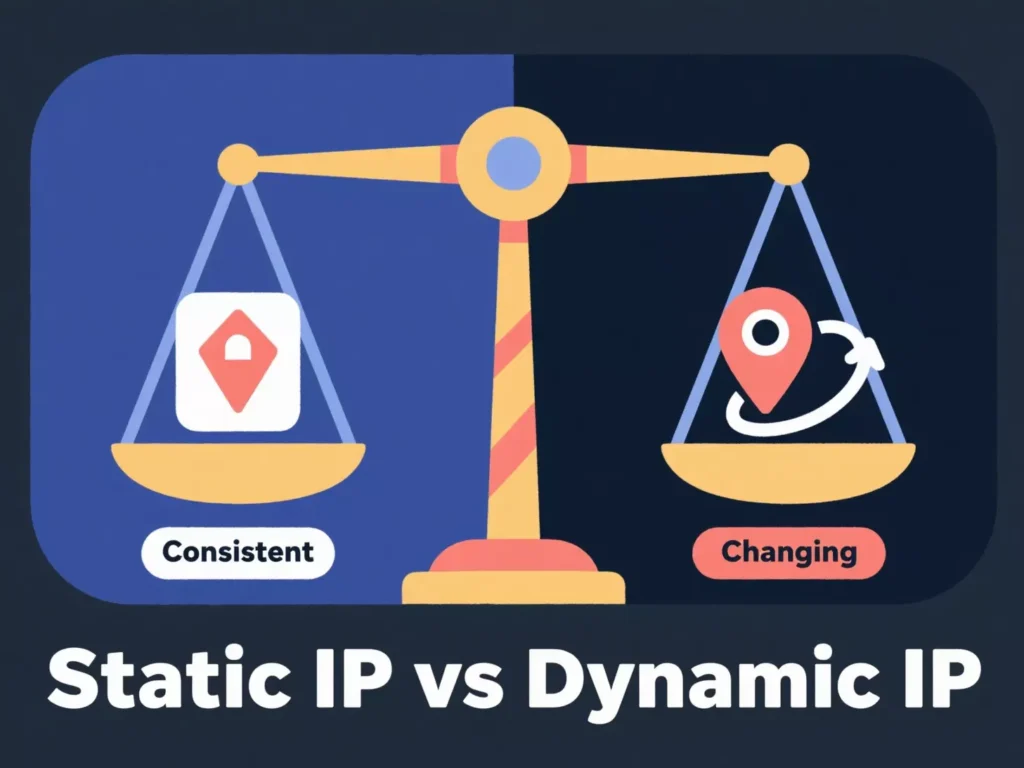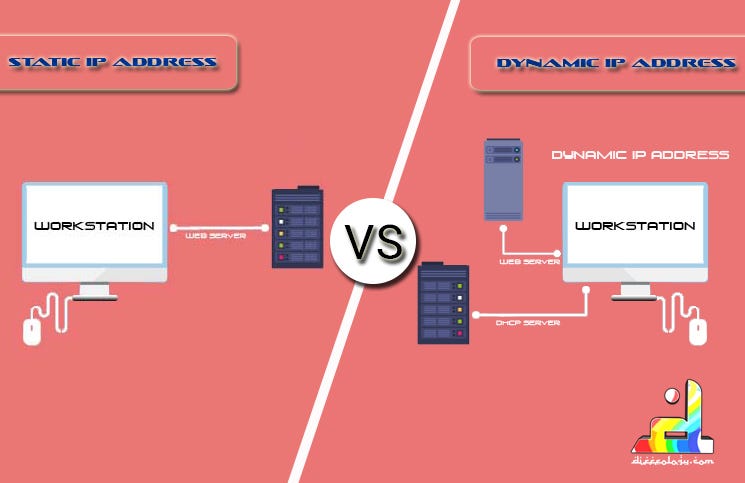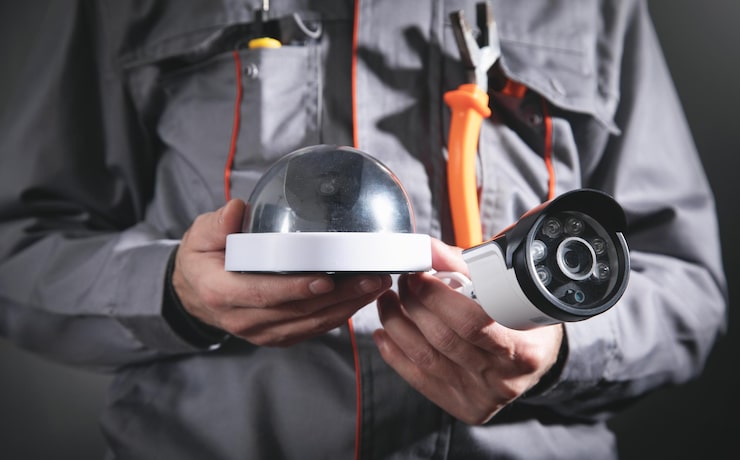Are you confused about the difference between static and dynamic IP addresses? You’re not alone.
Choosing the right type of IP can impact your internet experience, security, and even how you connect with others online. This article will clear up the mystery and help you understand which IP type suits your needs best. Keep reading to make smarter decisions for your network and enjoy a smoother, safer online journey.

Credit: thecybersecguru.com
What Is Static Ip
A static IP is a fixed address assigned to a device on the internet. It does not change over time.
This address helps identify your device uniquely on a network. It stays the same every time you connect.
How Static Ip Works
A static IP is set by the internet service provider or network admin. It stays linked to your device.
Your device uses this address to communicate with other devices on the internet or local network.
- The IP address is manually assigned or reserved for your device.
- It does not change unless your network admin updates it.
- This helps services find your device easily every time.
Common Uses Of Static Ip
Static IPs are useful when you need a constant connection point. This helps in many tech setups.
They are often used for servers, remote work, and devices that need stable access.
- Hosting websites or email servers
- Remote access to computers or security cameras
- Running online games or voice chat servers
- Setting up VPNs for secure connections
What Is Dynamic Ip
A dynamic IP address changes each time you connect to the internet. It is not fixed or permanent.
Internet service providers assign dynamic IPs to many users. This helps manage the limited number of IP addresses.
How Dynamic Ip Works
Dynamic IP addresses are given by a system called DHCP. This system gives a new IP every time a device connects.
The IP address can change after a set time or when the device reconnects. This keeps IPs in use by different devices.
Common Uses Of Dynamic Ip
Dynamic IPs are common for home internet and small businesses. They help save IP addresses and make networks flexible.
- Home users connect to the internet with dynamic IPs
- ISPs assign dynamic IPs to many customers
- Devices like smartphones and laptops use dynamic IPs
- Dynamic IPs help keep networks secure by changing addresses
Main Differences Between Static And Dynamic Ip
Internet Protocol (IP) addresses help devices find each other online. There are two main types: static and dynamic IPs. Each type has its own features and uses.
Understanding the differences can help you decide which IP type fits your needs best.
Address Stability
A static IP address stays the same every time you connect. It does not change over time.
A dynamic IP address can change each time you connect to the internet. It is assigned by the network automatically.
- Static IP: Fixed and permanent address
- Dynamic IP: Changes regularly
Configuration Process
Setting up a static IP requires manual configuration on the device or router. You must enter the IP address yourself.
Dynamic IPs are assigned automatically by the network using DHCP (Dynamic Host Configuration Protocol). This makes setup easier.
- Static IP: Manual setup needed
- Dynamic IP: Automatic setup via DHCP
Cost Implications
Static IP addresses often cost more. Internet providers may charge extra for a fixed IP.
Dynamic IP addresses usually come at no additional cost. They are common for home internet plans.
- Static IP: May have extra fees
- Dynamic IP: Usually free with service
Security Considerations
Static IPs can make it easier to set up security rules like firewalls. But they can also be easier to target by hackers.
Dynamic IPs change often, which can help hide your device from some attacks. This can add a layer of security.
- Static IP: Easier to secure but easier to track
- Dynamic IP: Harder to track but less control

Credit: www.ipfly.net
Advantages Of Static Ip
A static IP address stays the same every time you connect to the internet. It does not change like a dynamic IP. This helps devices and services work more smoothly.
Many businesses and users prefer static IPs for tasks that need a steady internet connection. Here are some key advantages of using a static IP address.
Reliable Remote Access
A static IP makes it easier to access your computer or network from far away. You always know the exact address to connect to.
This is helpful for workers who need to log into their office computers or servers from home or other places.
Better Dns Support
Static IPs help improve Domain Name System (DNS) services. DNS translates website names into IP addresses.
With a static IP, you can set up your own DNS records. This makes it easier to manage websites and email servers.
Improved Hosting
Hosting websites or servers works better with static IPs. Your server stays reachable at the same address all the time.
This reduces downtime and helps visitors find your site without issues.
Advantages Of Dynamic Ip
Dynamic IP addresses change each time a device connects to the internet. This type of IP is assigned by the internet service provider automatically.
Dynamic IPs offer many benefits over static IPs. These benefits help users and network managers in different ways.
Simplified Network Management
Dynamic IPs make network management easier. The system assigns addresses without needing manual setup.
This reduces the time and effort for network administrators. It also lowers the chance of errors in IP assignment.
Enhanced Privacy
Dynamic IPs help protect user privacy. Changing IP addresses makes it harder to track online activities over time.
This is useful for people who want to keep their browsing habits private. It also reduces the risk of targeted attacks.
Cost-effectiveness
Dynamic IPs are usually cheaper than static IPs. Providers save resources by reusing IP addresses among many users.
For users, this means lower fees. Small businesses and home users benefit from affordable internet plans.
When To Choose Static Ip
A static IP address stays the same every time you connect to the internet. Dynamic IP addresses change often. Choosing a static IP is useful in some cases.
This guide explains when a static IP is the better choice. It looks at business needs, hosting servers, and remote work requirements.
Business Needs
Businesses that need stable online presence benefit from static IPs. It helps keep websites and email servers reliable.
Static IPs support secure connections and easy remote access. They also help with running VPNs and managing firewalls.
- Run servers without IP changes
- Maintain constant email and website access
- Enable secure remote connections
- Set up better firewall rules
Hosting Servers
Hosting servers need static IPs to keep websites and apps online. A fixed IP helps users find your server easily.
Static IPs reduce downtime and improve site speed. They are important for SSL certificates and domain name systems (DNS).
- Keep websites reachable
- Support SSL and security certificates
- Improve DNS reliability
- Reduce server downtime
Remote Work Requirements
Remote workers using VPNs or remote desktop need static IPs. It allows secure and stable access to company networks.
Static IPs help IT teams control access and monitor connections. They make troubleshooting easier for remote devices.
- Enable secure VPN connections
- Allow stable remote desktop access
- Help IT manage network security
- Simplify remote troubleshooting
When To Choose Dynamic Ip
Dynamic IP addresses change each time you connect to the internet. They are common for many internet users. Choosing a dynamic IP can be smart in certain situations.
This type of IP helps keep your connection flexible and secure in daily use. It works well if you do not need a fixed address for your device.
Home Users
Home users often get dynamic IP addresses from their internet providers. This suits most homes well. It helps protect privacy by changing your IP regularly.
Dynamic IPs also reduce the chance of hackers targeting your home network. You do not need a static IP unless you run a server or need remote access.
Mobile Devices
Mobile devices like smartphones and tablets use dynamic IPs by default. This allows smooth switching between networks like Wi-Fi and mobile data.
Dynamic IPs help keep your device connected without manual setup. A static IP on mobile devices can cause connection problems and is rarely needed.
General Browsing
For everyday internet activities, dynamic IPs work well. They provide enough security and privacy for most users. You can browse, stream, and shop without issues.
Dynamic IPs also help prevent tracking by websites. A static IP is only needed if you access specific networks or run services online.
How To Switch Between Static And Dynamic Ip
Devices use IP addresses to connect to the internet. These addresses can be static or dynamic. Static IPs stay the same. Dynamic IPs change over time.
Switching between static and dynamic IPs can help with network setup or troubleshooting. This guide shows you how to change your IP settings.
Steps For Changing Ip Settings
To switch your IP type, access your device’s network settings. You can set your IP manually or use automatic settings.
- Open network settings on your device.
- Find the section for IP address or TCP/IP settings.
- Choose “Static” to enter a fixed IP address.
- Enter the IP address, subnet mask, gateway, and DNS manually.
- Choose “Dynamic” or “DHCP” to get an IP automatically.
- Save your changes and restart your connection.
These steps work on most devices like Windows, macOS, and routers. Always check your network details before changing settings.
Potential Challenges
Changing IP settings can cause some issues. Static IPs need careful setup to avoid conflicts. Dynamic IPs may change often, affecting remote access.
- Incorrect static IP can block internet access.
- Dynamic IP may disrupt connections needing a fixed address.
- Router settings might limit IP changes.
- Technical knowledge is needed for manual IP setup.
Always back up current settings before changing IP types. If unsure, ask a network expert for help.

Credit: network-switch.com
Frequently Asked Questions
What Is A Static Ip Address?
A static IP address is a fixed, unchanging IP assigned to a device. It’s ideal for servers and hosting websites, as it provides consistent connectivity. Static IPs are beneficial for remote access and running email servers. They often come with a higher cost compared to dynamic IPs.
How Does A Dynamic Ip Address Work?
A dynamic IP address is temporarily assigned to a device by a network. It changes periodically to optimize resource usage. ISPs use dynamic IPs to efficiently manage and distribute IP addresses. They are cost-effective and suitable for home users who don’t require a permanent address.
Why Choose A Static Ip Over A Dynamic One?
A static IP is preferred for consistent remote access and hosting services. It offers reliable connectivity and stability, which is crucial for servers. Dynamic IPs, on the other hand, are more cost-effective and ideal for regular internet browsing without needing a fixed address.
Are Static Ips More Secure Than Dynamic Ips?
Static IPs can be more vulnerable to targeted attacks due to their consistent nature. However, with proper security measures, they can be safe. Dynamic IPs change frequently, reducing the risk of targeted attacks. Both require good security practices to ensure network safety.
Conclusion
Choosing between static and dynamic IP depends on your needs. Static IP stays the same, making it good for servers and remote access. Dynamic IP changes often, which helps with privacy and ease of use. Both have pros and cons to consider.
Think about how you use the internet and what matters most. This will guide you to the right choice. Understanding these basics makes your decision clearer and simpler.
19 min read





